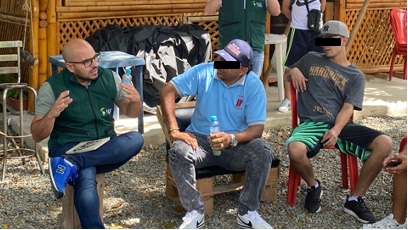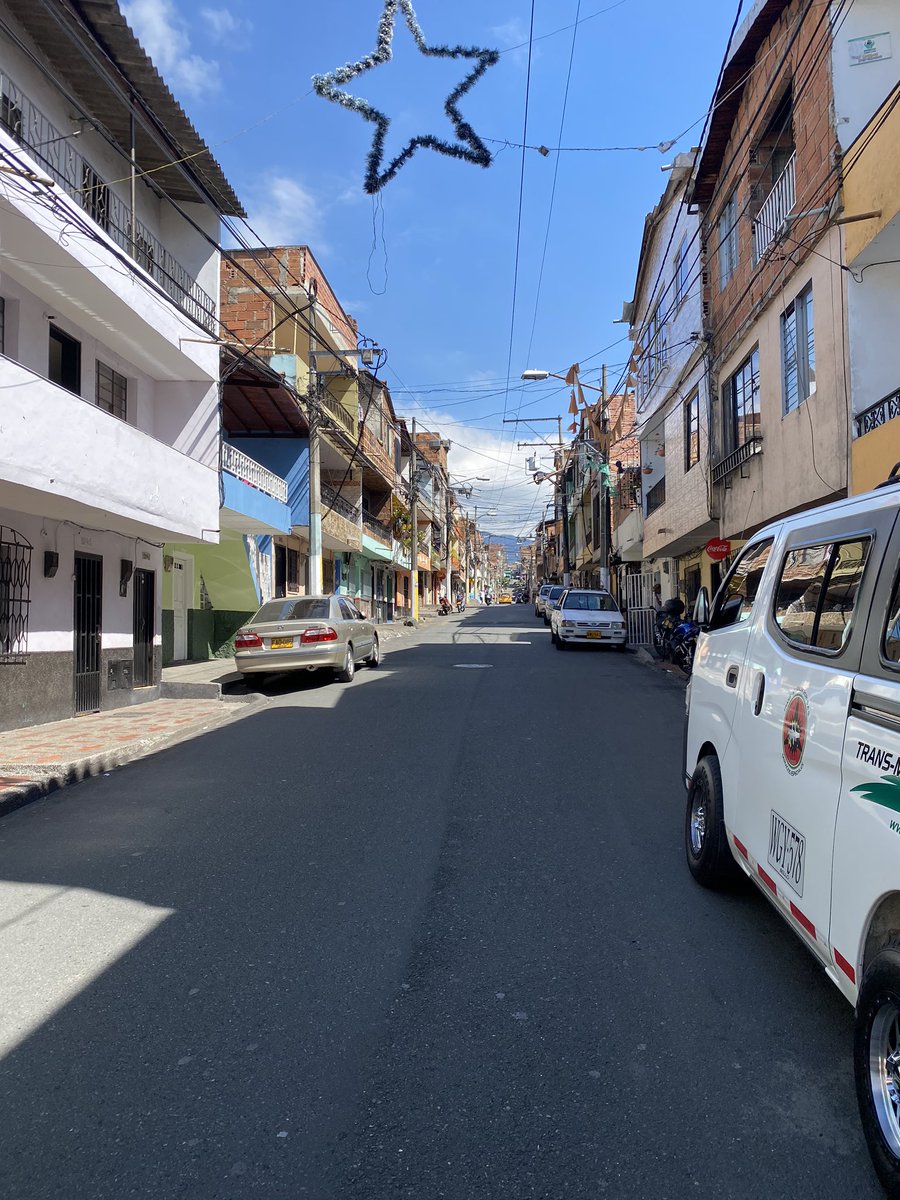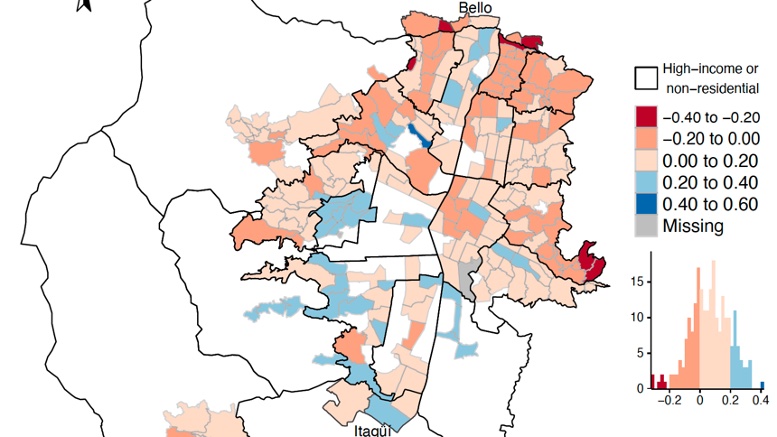
[Continued from previous thread]
When we left off, we were talking about what happened when states try to improve governing in underserved neighborhoods. Here's a "caravana" they held in each neighborhood, alongside the liaisons, where all agencies comes out to the sector.
When we left off, we were talking about what happened when states try to improve governing in underserved neighborhoods. Here's a "caravana" they held in each neighborhood, alongside the liaisons, where all agencies comes out to the sector.

After two years of intense state governance, relative state went down!!
Note: when we launched this with the city, we expected crowding out, and never expected the "crowding in" effect to dominate.
Note: when we launched this with the city, we expected crowding out, and never expected the "crowding in" effect to dominate.

Now, to be clear, we don't see clear evidence of a rise in absolute levels of combo rule. There are some signs that the state struggled to deliver, and that decreased people's happiness with the state. But even where it worked well: no evidence of crowding out!
We draw a few lessons from this. A big one is that gangs and gang rule don't emerge from state weakness. They can emerge from state strength. After all, the state is what makes something illegal, creates a space for gang profits. And the state compels gangs to seek loyalty.
Another is that these illicit economies and criminal rents are the big driver of gang strength. If you try to tackle something like gang rule without tackling rents, you can expect unexpected consequences.
The peril is that tackling rents can be destabilizing. Sometimes violent. Even if we were naive to start with, that's what made us so excited about the liaison intervention--it was peace enhancing. But there is no free lunch!
This goes to show how countering organized crime is really complicated. You have to understand the system better. We thought we did. We talked to them for years! But clearly policy experimentation is part of the learning process.
These data and models have given us new ideas for policy. Tackling rents is one. But there may be other pressure points, such as changing community norms, so that civilians are less likely to grant loyalty to the gangs, Delegitimize them. To be seen...
Also, a methods lesson: The economics-poli sci-ethnographer teamwork was key. The combo of rigorous qualitative and quantitative methods is what made this project for us. Economists do lots of bad qualitative work, the equivalent of unidentified regressions. We can do better.
Also, for the curious, see the paper for THE most comprehensive & exhaustive human subjects precautions I've ever taken (and I've done some). Everything from presenting to the IRB committee in person (a first) and involving justice minister, head of prison system, Mayor...
Again, full paper here: osf.io/preprints/soca…
Want to see us present results? Sign up for Feb 10 Zoom talk (en espanol tambien):
bfi.uchicago.edu/event/violence…
bfi.uchicago.edu/event/violence…
Finally, deep thanks to a huge team!
@David_Cerero
@SebastianANicol
@JuanPabloMesaM
@montoyacaler0
@MAranzazuRU
@so7fia
@PeterDeffebach
@kyle_holloway
@IPA_LAC
@AngieMondragonm
@mattescas
Zach Tausanovich
Martín Vanegas
Jose Miguel Pascual
J.F. Martínez
@David_Cerero
@SebastianANicol
@JuanPabloMesaM
@montoyacaler0
@MAranzazuRU
@so7fia
@PeterDeffebach
@kyle_holloway
@IPA_LAC
@AngieMondragonm
@mattescas
Zach Tausanovich
Martín Vanegas
Jose Miguel Pascual
J.F. Martínez
And sincere thanks to funders:
@NSF
@FCDOGovUK & @FCDOREDGCSD
@JPAL
@poverty_action
Proantioquia
EDI
@EAFIT CESED
@poverty_action
@NSF
@FCDOGovUK & @FCDOREDGCSD
@JPAL
@poverty_action
Proantioquia
EDI
@EAFIT CESED
@poverty_action
• • •
Missing some Tweet in this thread? You can try to
force a refresh








